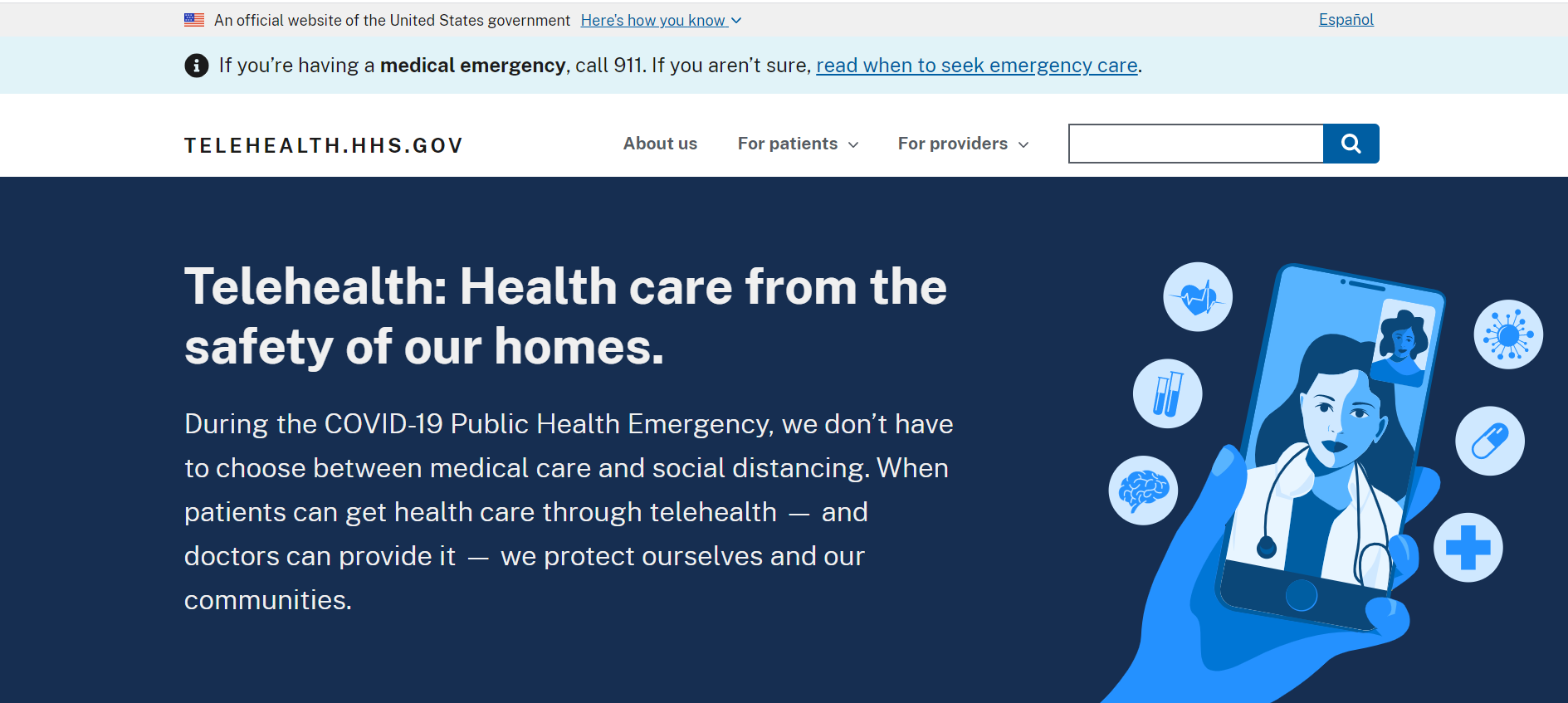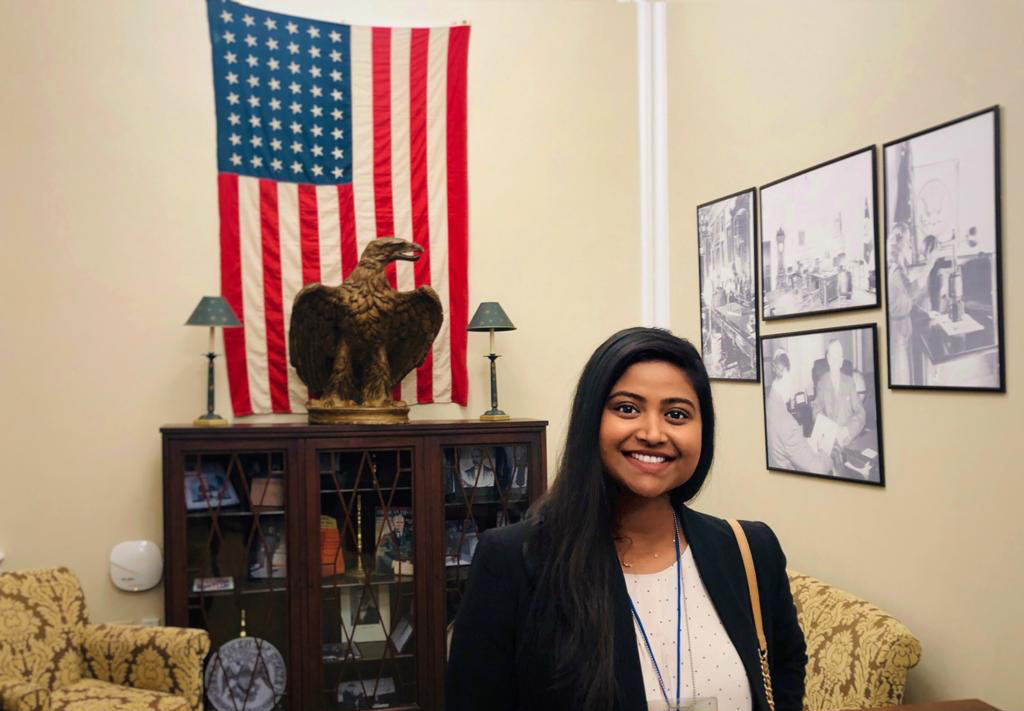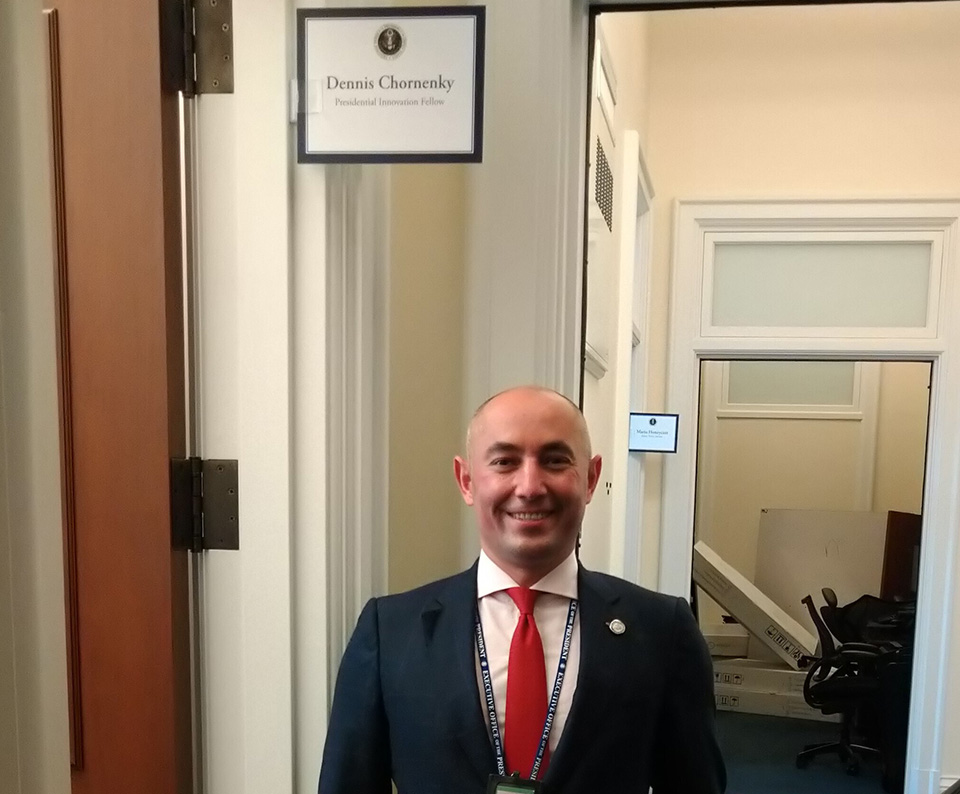Health and Human Services
Accelerating telehealth awareness and adoption during the COVID-19 pandemic
Co-creating a cross-agency initiative to address challenges seen in adopting telehealth and serve 1M+ health care providers and 300M+ patients across the U.S.

About the project
Presidential Innovation Fellows (PIF) worked with Health Resources and Services Administration (HRSA), the U.S. Department of Health and Human Services, the White House Office of Science and Technology Policy (OSTP), and the Office of the Surgeon General (OSG) to lead a cross-agency initiative to address challenges seen in adopting telehealth and serve 1M+ health care providers and 300M+ patients across the U.S.
The challenge
The public shouldn’t have to choose between social distancing and receiving medical care. How might we expedite awareness and adoption of telehealth at the peak of a public health emergency?
During the global COVID-19 pandemic, digital health became increasingly important. When people seek in-person medical care, they risk exposure for themselves, their family, other patients, and health care providers. As a result, brick-and-mortar medical facilities are also offering telemedicine to add to or replace traditional in-person office visits. Using telemedicine from their home, clinicians are able to do virtual visits, refill and adjust essential medications, and modify treatments that will preserve and improve conditions that put patients at risk if left untreated.
Responding to this challenge, the U.S. government made historic strides by deregulating telehealth and reducing bottlenecks in key areas such as HIPAA requirements, reimbursement arrangements, and provider liability.
However, policy changes information and the impact on the public was not centralized nor communicated in plain language. This thwarted fast adoption of telehealth for both providers and the public.
The solution
Early user research indicated that healthcare providers and patients needed a central government resource that provided up-to-date guidance on how to take advantage of the latest tools and information. This was particularly imperative to providers with fewer administrative resources, such as small-practice physicians. To address this challenge and expand telehealth capacity to meet the spike in demand for safe virtual care, Presidential Innovation Fellows (PIF) led the development and launch of Telehealth.HHS.gov, a government website that aims to increase the adoption of telehealth at a time when it is essential to protect the public by providing helpful information about telemedicine in plain language, and links to tools and resources for health care providers.

PIF Likhitha Patha was detailed to Health Resources and Services Administration (HRSA) within the U.S. Department of Health and Human Services (HHS) to lead this cross-agency initiative. She drove product strategy and engineering development and managed a lean team of developers, designers, and user researchers. In order to create a beautiful and modern website, they leveraged the U.S. Web Design System (USWDS) to easily adopt the latest web design standards.

PIF Dennis Chornenky was detailed to the White House Office of Science and Technology Policy (OSTP) as an AI policy advisor. In response to COVID-19, he leveraged his healthcare and epidemiology background to take on the additional role of a telehealth policy lead. Working with OSTP colleagues, he helped to bring together leaders and subject-matter experts from HHS, HRSA, Federal Emergency Management Agency (FEMA), and the Office of the Assistant Secretary for Preparedness and Response (ASPR) to identify opportunities and challenges for telehealth, formulate and advance policy perspectives, and build support for the website project.

Communicating with our public servants and our people is critical in times of crisis. PIF also worked with the Office of the Surgeon General and OSTP to create a call to service for physicians to coincide with the site launch. The call ensured doctors could get the Surgeon General’s message on social media and the HHS blog, go to the site, and get resources to set up their practices for telemedicine. They could also sign up quickly with telehealth platforms to expand the supply of telehealth providers.
Bringing together leaders and subject matter experts from HHS, HRSA, OSTP, FEMA, and ASPR, PIF envisioned the project, articulated user needs, secured sponsorship for a timely execution and launched the site from inception to production in less than two weeks.
The impact
The website actively serves thousands of its users by providing easy access to policy changes in plain language and has seen a positive response across the telehealth community. The core team remains committed to mobilizing a strong telehealth workforce to help keep Americans healthy through and beyond this challenging time, with this effort finding a long-term home and funding in HRSA’s Federal Office of Rural Health Policy and Office for the Advancement of Telehealth.
Building on this work further, PIF Dennis Chornenky worked with White House colleagues and led the White House launch of the Pledge to Embrace Technology to Advance America’s Health. Over 50 of the nation’s largest health insurance plans and stakeholders enthusiastically committed to expand telehealth coverage and adoption.
This move helped reassure Americans that telehealth is here to stay. When patients can get healthcare through telehealth—and doctors can provide it—we protect ourselves and our communities. Our digital approach helps keep providers and patients safe and healthy for the long run.
The response
Here’s the response we’ve received from agency leaders we supported:
“The Presidential Innovation fellows were essential to telehealth.hhs.gov. Likhitha’s leadership delivered a comprehensive telehealth website where for the first time, patients and providers could get the information they needed to access and provide care. Dennis was instrumental in ensuring our private sector partners were taking the right steps to provide virtual care across the country. The PIFs stepped up and in to drive innovation with HHS at a crucial time and it is a model of how successful collaboration across government should occur.”
“In addition to the $46.5 million in telehealth investments in FY20 that HRSA invested across its programs, HRSA led the effort to launch telehealth.hhs.gov. This new website will continue to be a critical resource for clinicians and patients to successfully receive safe and reliable health care during the pandemic.”
“Presidential Innovation Fellows have played critical roles in the government’s response to multiple crises since the program’s inception. Because of this, we have become a trusted partner to government leaders both in agencies and the White House. When the White House reached out to see if Fellows could provide product leadership and health policy expertise as they worked to launch this effort, we were thrilled to help. I’m extremely proud that this effort serves as another great example of PIFs stepping up during a crisis to help the American public.”
Our immense gratitude to HHS Deputy Secretary Eric D. Hargan, Chief of Staff to the Deputy Secretary William Brady, HRSA Administrator Thomas J. Engels, U.S. CTO Michael Kratsios, Heather Dimeris, Dolly Moorhead, David Yue, Brantley Jolly, and Shannon Sartin for their leadership and support.

